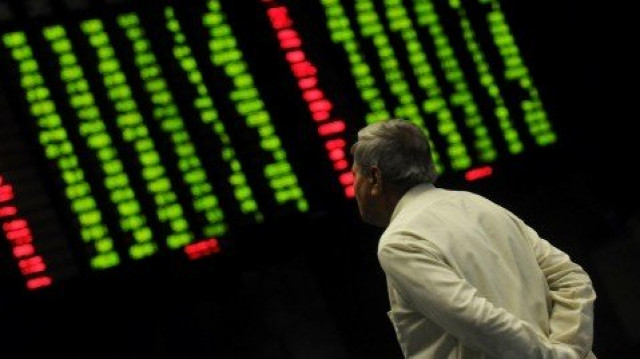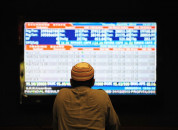‘Why should we be left out of the club?
KSE makes strong case for inclusion in MSCI Emerging Markets Index.

Pakistan was part of the Emerging Markets Index for 15 years, but MSCI dropped the country in December 2008.
“As opposed to the MSCI review in 2012, which said Pakistan had only three companies that met the required quantitative criteria for the Emerging Markets Index, we’ve pointed out to MSCI several times that Pakistan’s equity market had four companies that were sizeable enough to meet the eligibility criteria even in 2010 and 2011,” KSE Deputy Managing Director Haroon Askari told The Express Tribune.
He added that the number of Pakistani companies meeting the size and liquidity requirements of the MSCI Emerging Markets Index is now five, as Pakistan Oil Fields has already joined Oil and Gas Development Company, Fauji Fertilizer, MCB Bank and Pakistan Petroleum on the list of eligible companies.

The MSCI Emerging Markets Index is a free float-adjusted market capitalisation index, which measures equity market performance of emerging markets that include Brazil, Chile, China, Colombia, Czech Republic, Egypt, Hungary, India, Indonesia, Korea, Malaysia, Mexico, Morocco, Peru, Philippines, Poland, Russia, South Africa, Taiwan, Thailand, and Turkey. With 821 constituents, the index covers approximately 85% of the free float-adjusted market capitalisation in each country.
Pakistan was part of the Emerging Markets Index for 15 years, but MSCI dropped the country in December 2008. According to Askari, MSCI did not remove Pakistan because of any quantitative changes: rather, this was done solely because of the imposition of the floor rule by KSE authorities that year, which shut the stock market for over three months in August 2008.
“We should keep in mind that the Czech Republic and Peru have three companies each, while Hungary and Morocco have four companies each which meet the requirements of the MSCI Emerging Markets Index,” Askari said, emphasising the fact that in terms of the number of eligible companies, Pakistan is ahead of these four countries.
“They have not given us any logical reason yet. They keep saying we’re reviewing your case, but there hasn’t been any definite answer. Their reluctance is a mystery to me,” Askari added.
The MSCI communications team did not respond to repeated queries from The Express Tribune.
According to the MSCI Global Investable Market Indices Methodology issued in March 2011, a country must have at least three companies with full market capitalisation of $876 million, float market capitalisation of $438 million and 15% Annualised Traded Value Ratio – a liquidity measure – to become part of the MSCI Emerging Markets Index. Five Pakistani companies currently fulfil these requirements.
As for MSCI’s market accessibility criteria, capital market regulations in Pakistan do not discriminate between local and foreign investors, as the latter have no special registration and/or licencing requirement. Similarly, foreign investors may acquire up to 100% shares in a listed company through the secondary market.
As for the ease of capital inflows/outflows, which is another criterion for a country’s inclusion into the MSCI Emerging Markets Index, the regulatory framework in Pakistan allows foreign investors to trade freely in equities and debt instruments, he said. There are no restrictions on foreign investors taking their capital out of the country, he pointed out.
“The Securities and Exchange Commission of Pakistan has implemented necessary measures to ensure that market discipline and integrity are not compromised in the future by ad hoc decision-making, such as floor rules, by the country’s stock exchanges,” Askari added.
While mentioning that the returns on the KSE-100 index were 49.3% in rupee terms and 37% in dollar terms in 2012, Askari said MSCI must review its decision to keep Pakistan out of its Emerging Markets Index.
Published in The Express Tribune, January 19th, 2013.
Like Business on Facebook to stay informed and join in the conversation.



















COMMENTS
Comments are moderated and generally will be posted if they are on-topic and not abusive.
For more information, please see our Comments FAQ